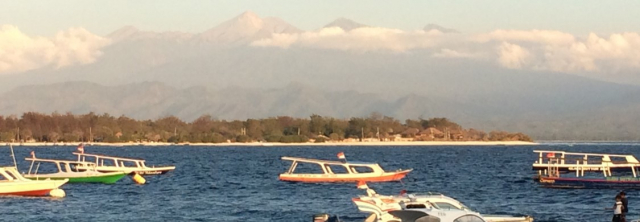Conceptual overview
Local knowledge of how coastal social-ecological systems (SES) function is a key basis on which actors make governance decisions regarding resource use. However, the extent and proficiency of local actor knowledge about their social-ecological system (SES), compared to scientific assessments of those same systems, has received minimal focus, but is nonetheless a critical research topic for two reasons. (1) Local social-ecological knowledge can be useful for monitoring and informing about system states and changes when scientific assessments are not feasible or possible, and (2) little is known about how the degree and proficiency of local knowledge held by local actors influences their ability to make more effective governance decisions.
Project context in SCUBA tourism
We aim to test the local knowledge of SCUBA diving actors (e.g., business owners, instructors, guides) on the popular island of Gili Trawangan, Indonesia. We will test their ecological knowledge of reef health, key species and changes over time. We will test their social knowledge about the island’s social networks of cooperation. We will then compare this local knowledge to that same knowledge collected with scientific methods. These same actors are influential in governance decisions on the islands, providing opportunity to assess the extent to which this knowledge influences coral reef use.
Project Partners |
|---|
|
Dr. Nurliah Buhari, University of Mataram, IDN Andre Saputra, Gili Shark Conservation, IDN Delphine Robbe, Gili EcoTrust, IDN |





